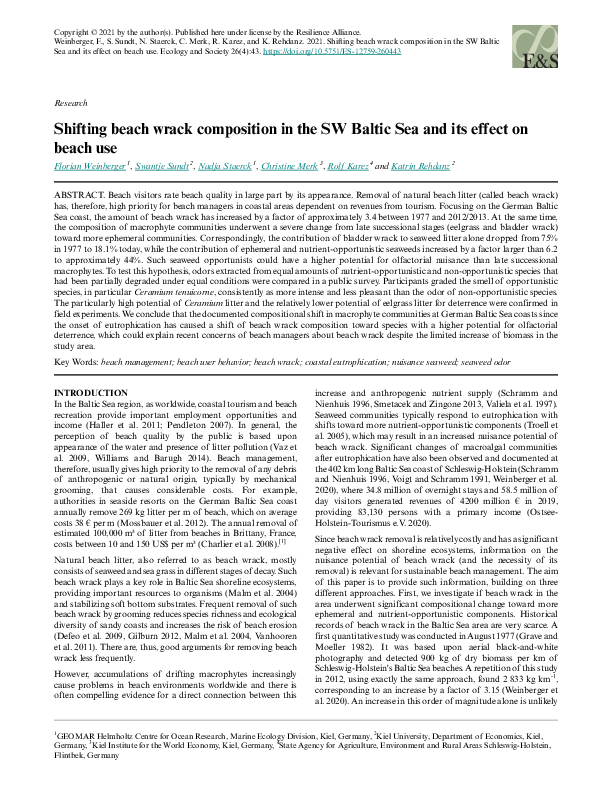Journal Article
Shifting beach wrack composition in the SW Baltic Sea and its effect on beach use
Beach visitors rate beach quality in large part by its appearance. Removal of natural beach litter (called beach wrack) has, therefore, high priority for beach managers in coastal areas dependent on revenues from tourism. Focusing on the German Baltic Sea coast, the amount of beach wrack has increased by a factor of approximately 3.4 between 1977 and 2012/2013. At the same time, the composition of macrophyte communities underwent a severe change from late successional stages (eelgrass and bladder wrack) toward more ephemeral communities. Correspondingly, the contribution of bladder wrack to seaweed litter alone dropped from 75% in 1977 to 18.1% today, while the contribution of ephemeral and nutrient-opportunistic seaweeds increased by a factor larger than 6.2 to approximately 44%. Such seaweed opportunists could have a higher potential for olfactorial nuisance than late successional macrophytes. To test this hypothesis, odors extracted from equal amounts of nutrient-opportunistic and non-opportunistic species that had been partially degraded under equal conditions were compared in a public survey. Participants graded the smell of opportunistic species, in particular Ceramium tenuicorne, consistently as more intense and less pleasant than the odor of non-opportunistic species. The particularly high potential of Ceramium litter and the relatively lower potential of eelgrass litter for deterrence were confirmed in field experiments. We conclude that the documented compositional shift in macrophyte communities at German Baltic Sea coasts since the onset of eutrophication has caused a shift of beach wrack composition toward species with a higher potential for olfactorial deterrence, which could explain recent concerns of beach managers about beach wrack despite the limited increase of biomass in the study area.





